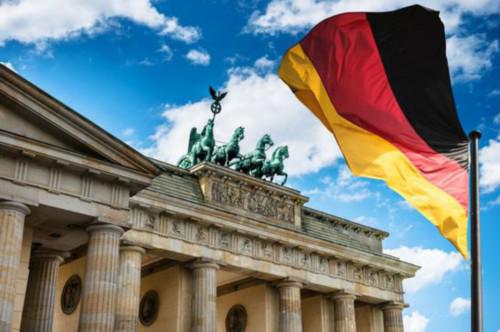
In the complex interweaving of the global economic landscape, the economic movements of each country are like stars, although small, they can illuminate the road ahead of the global economy. Recently, the authoritative forecast of Germany, the engine of the European economy, has cast a thought-provoking shadow over the global economic outlook - Germany predicts a decline in economic growth in 2024. This forecast is not only a profound analysis of the German domestic economic situation, but also an important reminder of the global economic recovery path.
Germany, as the world's fourth largest economy and the largest economy within the European Union, has traditionally been regarded as a bellwether for the European and global economy. Germany, with its strong manufacturing base, highly developed industrial system and rigorous artisan spirit, has long played a pivotal role on the global economic stage. However, even such an economic powerhouse is not completely immune to the effects of global economic fluctuations.
This forecast of a slowdown in economic growth is not groundless. In recent years, although the German economy has maintained steady growth as a whole, it has shown many challenges and hidden worries. On the one hand, the increased uncertainty of the global trade environment and the rise of trade protectionism have a direct impact on the export-dependent German economy; On the other hand, the domestic labor shortage, the increasingly severe problem of an aging population, coupled with the rising cost and supply chain adjustment in the process of energy transition, have brought no small pressure to the continued growth of the German economy.
The forecast of a slowdown in the German economy is in fact a microcosm of the complex and volatile global economic environment. Globally, geopolitical tensions, the ongoing impact of the pandemic, the challenge of climate change, and the deep restructuring of the global economy are among the main features of the current economic environment. These factors are intertwined, making the road to global economic recovery full of uncertainties.
In particular, the impact of the epidemic, although countries continue to advance vaccination efforts, the challenges posed by the mutation of the virus remain, posing a continuing threat to the recovery of global economic activity. In addition, the restructuring of global supply chains and the volatility of energy prices caused by geopolitical conflicts have further exacerbated the instability of the global economy. In this context, Germany, as an important part of the global economic system, is naturally not immune.
In addition to the impact of the external environment, the German economy is also facing many internal challenges. First, there is a growing shortage of Labour. With the increasing aging of the population, the contradiction between supply and demand in the German labor market is becoming increasingly acute, which not only limits the expansion of enterprises and the improvement of production efficiency, but also affects the growth potential of the overall economy.
Second, the challenges of the energy transition cannot be ignored. The German government has clearly stated the goal of achieving carbon neutrality and has developed an ambitious Energy transition plan to this end. However, the energy transition will not happen overnight, it will require huge investment, technological innovation, and broad participation at all levels of society. In the process of transformation, how to balance the relationship between economic development and environmental protection, and how to ensure the stability and security of energy supply are all important issues that the German government and enterprises need to face.
In addition, the acceleration of digital transformation also presents new challenges and opportunities for the German economy. While Germany has a strong manufacturing base, it is lagging behind when it comes to digital transformation. How to seize the opportunities brought by the digital wave, enhance industrial competitiveness, and achieve the optimization and upgrading of economic structure is an urgent problem for the German government and enterprises.
In general, the news that Germany is forecasting a decline in economic growth in 2024 causes us to think deeply about the underlying reasons and the complexity of the global economic environment. Facing a future of both challenges and opportunities, governments and enterprises around the world are responding to challenges and seeking breakthroughs with unprecedented determination and courage. We have every reason to believe that with the concerted efforts of countries around the world, the global economy will emerge from the gloom and usher in a brighter future.

報告顯示,中國電力投資加速增長,預計2024年電網基建投資將超過5300億元。
近日,市場迎來了一則引人注目的消息:工業巨頭3M公司(MMM.N)在本周五公布了其季度業績報告,隨後股價飆升至近兩年來的
最近,外媒給OpenAI算了筆賬,今年可能要血虧50億美元。
近日,巴黎奧運會和世界鐵人三項協會聯合發布了一項重大決定,宣布因塞納河水質污染問題,原定於近期進行的奧運會鐵人三項首次下
當地時間7月18日,法國巴黎發生了一起令人震驚的持刀襲警事件。
近期,一則重大消息在國際舞臺上引起軒然大波,馬來西亞宣布加入金磚國家。
調查發現,互聯網和智能手機的使用幹擾了韓國近五分之一學生的生活。